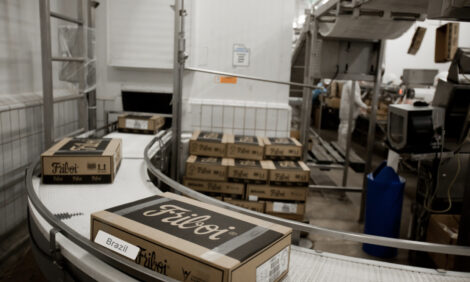



Weekly Overview: Concerns Mount over Russian Block on Imports
ANALYSIS - Concerns have been raised around the world to the Russian block on imports from the USA, Canada, EU, Australia and Norway with a bitter reaction from both governments and the farming communities.Following the announcement of Russia's ban on agriculture exports from the EU, the EU Commissioner for Agriculture and Rural Development Dacian Ciolos said that the Common Agricultural Policy (CAP) should help to protect farmers.
Mr Ciolos said: “I understand the concern expressed in the EU farming sector. I want to underline that the Common Agricultural Policy has new and modernised tools to stand by them, as soon as it is needed, including our crisis reserve, which is already available now.
"I am confident that our resilient farm sector will reorient rapidly towards new markets and opportunities. But there must be support to help this transition happen smoothly. This requires a joined up, European response.
At the same time, the Australian government is currently assessing the likely impact of the Russian Federation ban on imports of certain agricultural products, raw materials and foodstuffs.
And, in Ireland, Agriculture Minister Simon Coveney said that the move is unwelcome but that it is not surprising given the recent evolution of events.
“My Department are currently working to clarify the specific details of the ban. The impact on Ireland will depend both on the products covered by the ban and any knock-on effects on international market prices as banned product seeks replacement markets,” the minister said.
"Whilst Ireland’s agri-food export trade with Russia represents less than 2.5 per cent of total agri-food export, this very much belies the importance of this market in terms of its future potential.”
Meanwhile, the Russian food safety and veterinary authority Rosselkhoznadzor and Omsk Region border guards have intercepted a vehicle trying to smuggle a shipment of US poultry from Kazakhstan to Russia.
The illegal shipment contained 1,334 boxes with more than 20 tonnes of poultry.
Away from the Russian crisis, Uganda has a suitable climate and is poised on the brink of developing its poultry industry to the next level, according to industry analyst, Dr John Strak.
He said that three things support the claim.
The first is the climate and Uganda is currently an exporter of surplus maize to its neighbours and increased yields, better quality and storage infrastructure will see an abundance of maize produced in Uganda in the next five years.
Secondly, the demand for meat in Africa is rising and Dr Strak believes the rate of growth will grow in the short term and the next 10 years will be a boom time for meat production in that part of the world.
Thirdly, he said that he believes the people in Uganda are clearly ready for a leap forward in infrastructure, farming practices and agribusiness management.
The global bird flu situation has seen two fresh outbreaks of highly pathogenic (H5N6) bird flu in Lang Son and Ha Tinh provinces of Viet Nam.
In Hong Kong, initial tests on the abnormal deaths of chickens at a farm in San Tin, Yuen Long showed that the birds were not infected with avian influenza.









